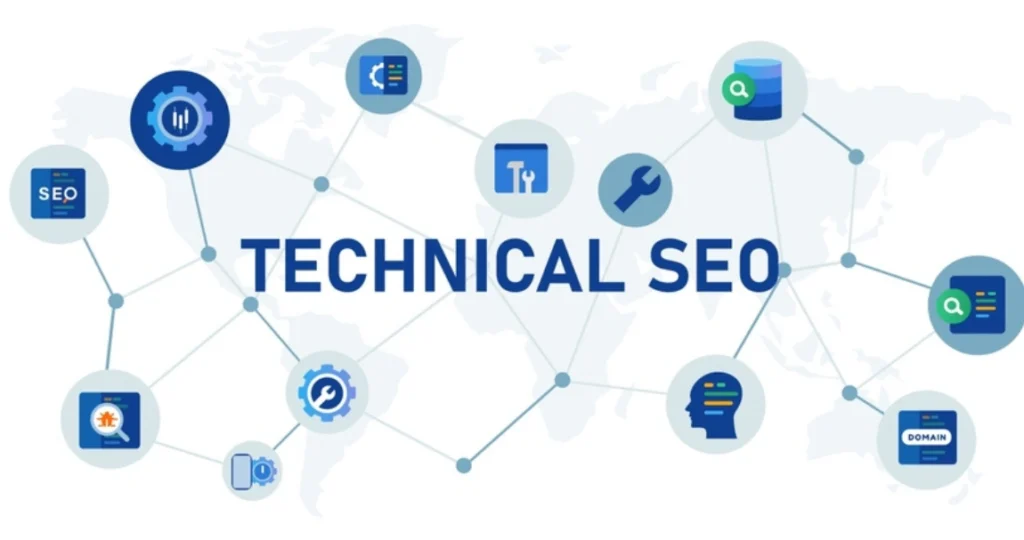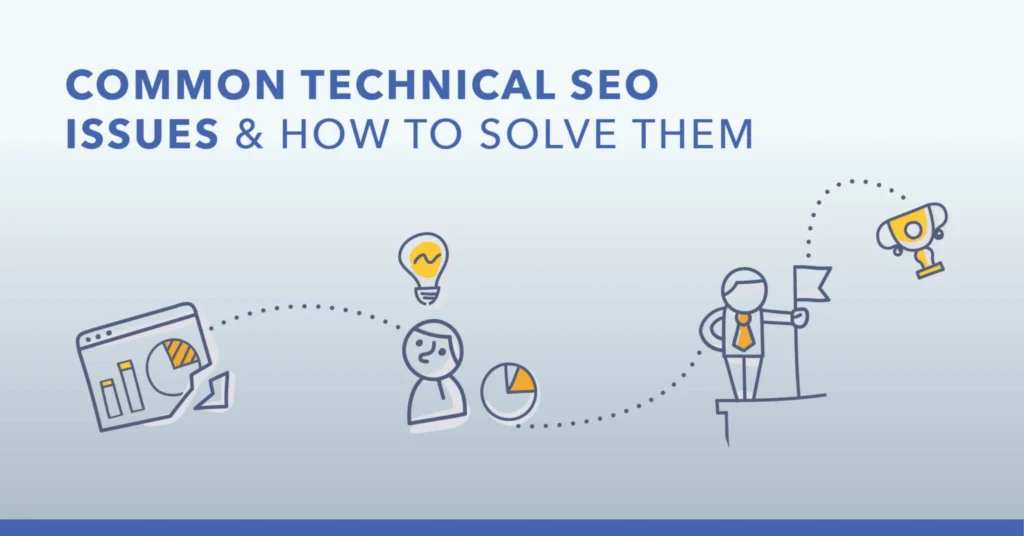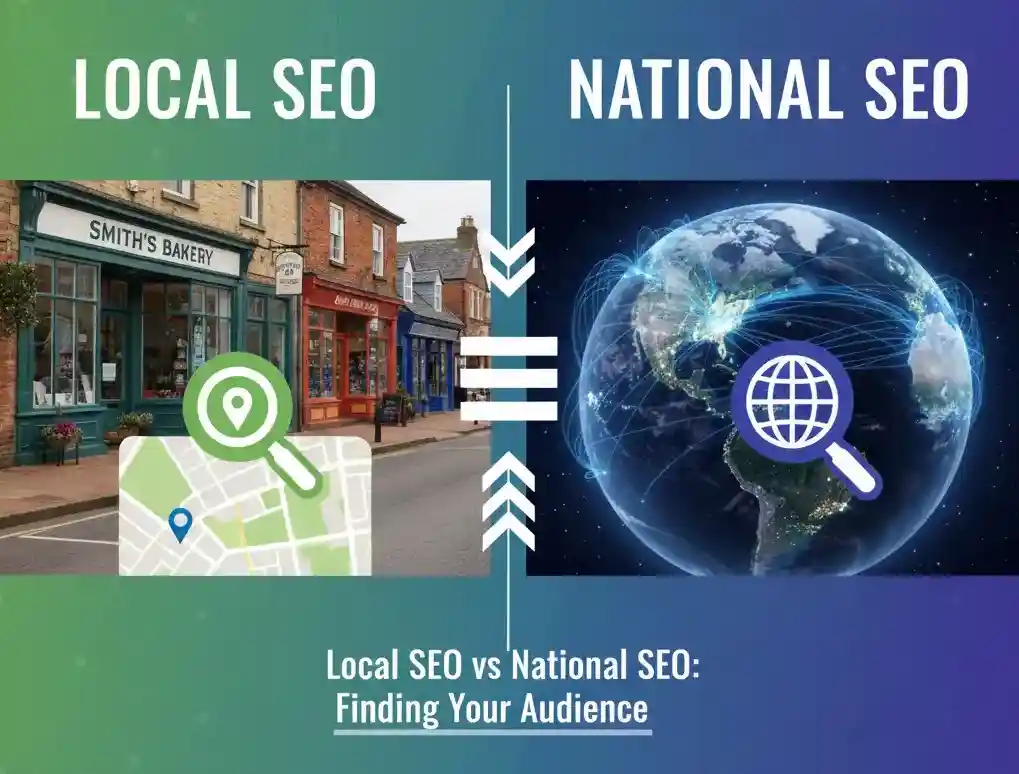Search Engine Optimization (SEO) is the process of improving a website to increase its visibility in search engine results. It plays a key role in digital marketing by helping businesses attract more organic traffic and reach potential customers online.
While many are familiar with content and keyword strategies, one important area often overlooked is technical SEO.
Let’s explore the technical foundations of SEO and how they directly influence your website’s performance in Google rankings.
What is Technical SEO

Technical SEO is the process of improving the technical setup of a website so that search engines can easily find, read, and understand its pages. It includes things like making your site load quickly, work well on mobile devices, and follow secure web practices.
This part of SEO is different from on-page SEO, which focuses on content and keywords, and off-page SEO, which is about links from other websites. Technical SEO works in the background to make sure your website is built in a way that supports strong search rankings. Without it, even high-quality content can struggle to perform well in search results.
Important Parts of Technical SEO
To help your website rank better on Google, it’s important to pay attention to several technical factors. These elements work together to make sure your site is easy for both users and search engines to understand and navigate.
1. Website Speed and Performance
A slow website can turn visitors away and affect your position in search results. Improving load times creates a better user experience and helps Google view your site more positively.
2. Mobile-Friendliness
More people now browse the web on their phones. A mobile-friendly website adjusts smoothly to different screen sizes and ensures that all content is easy to read and use on any device.
3. Secure Sockets Layer (SSL)
Websites with HTTPS are seen as more trustworthy. Adding SSL to your site not only protects user data but also signals to search engines that your website is secure.
4. Structured Data Markup
Structured data, also known as schema markup, helps search engines understand the content on your pages. It can also make your listings more detailed in search results, showing things like ratings, prices, or event times.
5. XML Sitemaps and Robots.txt
An XML sitemap helps search engines find and index all the important pages on your site. The robots.txt file tells search engines which pages they should or shouldn’t crawl. Together, they guide how your site is explored and understood.
How Technical SEO Helps Google Rankings

Technical SEO plays a key role in how well your website performs in search results. When your site is built with the right technical foundations, it becomes easier for search engines to understand and rank your pages.
1. Crawlability and Indexability
Search engines like Google use bots to crawl websites and decide which pages should appear in search results. A well-structured site with clean navigation, internal links, and proper use of sitemaps allows these bots to move through your content smoothly and index your pages more effectively.
2. User Experience (UX)
Google values websites that offer a good experience to users. Technical SEO helps with this by improving how quickly your pages load, how well they work on mobile devices, and how easy they are to navigate. When users stay longer on your site and engage with your content, it sends positive signals to Google, which can help your rankings.
3. Reduction of Duplicate Content
Having the same content appear on multiple URLs can confuse search engines and hurt your rankings. Technical SEO addresses this by using tools like canonical tags and proper URL structures to make sure Google knows which version of a page is the main one. This helps avoid content duplication issues and keeps your SEO efforts focused.
Common Technical SEO Issues and How to Solve Them

Even with a well-designed website, technical issues can arise that negatively impact your search performance. Identifying and fixing these problems early is key to maintaining strong visibility on Google. Here are some common technical SEO issues and how to deal with them:
1. Broken Links and 404 Errors
When a link on your site leads to a missing page, it results in a 404 error. These broken links can harm both user experience and search rankings. Use tools like Google Search Console, Screaming Frog, or Ahrefs to regularly check for broken links. Fix them by either updating the link to a correct URL or setting up a proper redirect.
2. Slow Page Load Times
If your website takes too long to load, users are more likely to leave before it even finishes. To speed things up, compress large images, reduce unnecessary code (such as unused JavaScript or CSS), and enable browser caching. Tools like Google PageSpeed Insights and GTmetrix can help pinpoint exactly what’s slowing your site down.
3. Improper Redirects
Redirects are useful when pages are moved or removed, but using the wrong type can confuse search engines. A 301 redirect is best for permanent changes, while a 302 redirect should only be used for temporary ones. Always check your redirects to make sure they’re leading users and search engines to the right destination without creating redirect chains or loops.
Tools and Resources for Technical SEO
To implement effective technical SEO, you need the right tools to monitor, analyze, and optimize your website’s performance. Here are some essential resources that can help you stay on top of your technical SEO efforts:
1. Google Search Console
Google Search Console is an essential tool for any website owner. It provides insights into how Google sees your site, helping you monitor site performance, discover crawl errors, and track indexing issues. You can also see which pages are performing well and which ones need improvement, allowing you to address any potential technical SEO problems.
2. PageSpeed Insights
Page speed is a critical factor in user experience and SEO. Google’s PageSpeed Insights analyzes your web pages and provides specific recommendations to improve load times, such as image optimization, script minification, and better server response times. It gives you both desktop and mobile performance scores, ensuring your website is optimized for all devices.
3. Other Notable Tools
There are several additional tools that can help streamline your technical SEO tasks:
- Screaming Frog: A powerful website crawler that helps identify issues like broken links, duplicate content, missing meta tags, and more.
- GTmetrix: An easy-to-use tool for analyzing your website’s page load speed and performance, offering detailed insights on how to improve.
- SEMrush: Known for its SEO analysis, SEMrush also offers technical SEO audits to identify problems with site structure, backlinks, crawlability, and more.
The Future of Technical SEO
The future of technical SEO is being shaped by key trends like Core Web Vitals and advancements in artificial intelligence (AI). Google’s Core Web Vitals, which measure user experience factors such as page speed and interactivity, are now part of the ranking algorithm, making user-friendly websites more likely to rank higher.
At the same time, AI and machine learning are changing how search engines understand content, focusing on context and user intent rather than just keywords. To stay competitive, websites must adapt by optimizing their technical SEO with clean code, structured data, and a focus on user experience.
Why Partner with a Technical SEO Agency
Partnering with a technical SEO agency like Xofts offers numerous advantages when it comes to improving your website’s search rankings. The expertise and experience of professionals in the field allow them to navigate complex technical SEO challenges that may be difficult for an in-house team to manage.
With years of experience, Xofts has the knowledge to implement effective strategies that deliver results. A customized SEO strategy makes sure that the approach is aligned with your specific business goals, whether it’s increasing traffic, improving user experience, or boosting conversions.
The digital world is constantly changing, and Xofts offers continuous monitoring and adaptation, making sure that your website remains optimized in response to search engine algorithm updates and industry changes. With a dedicated technical SEO agency, you can stay ahead of the competition and focus on your business’s growth.



